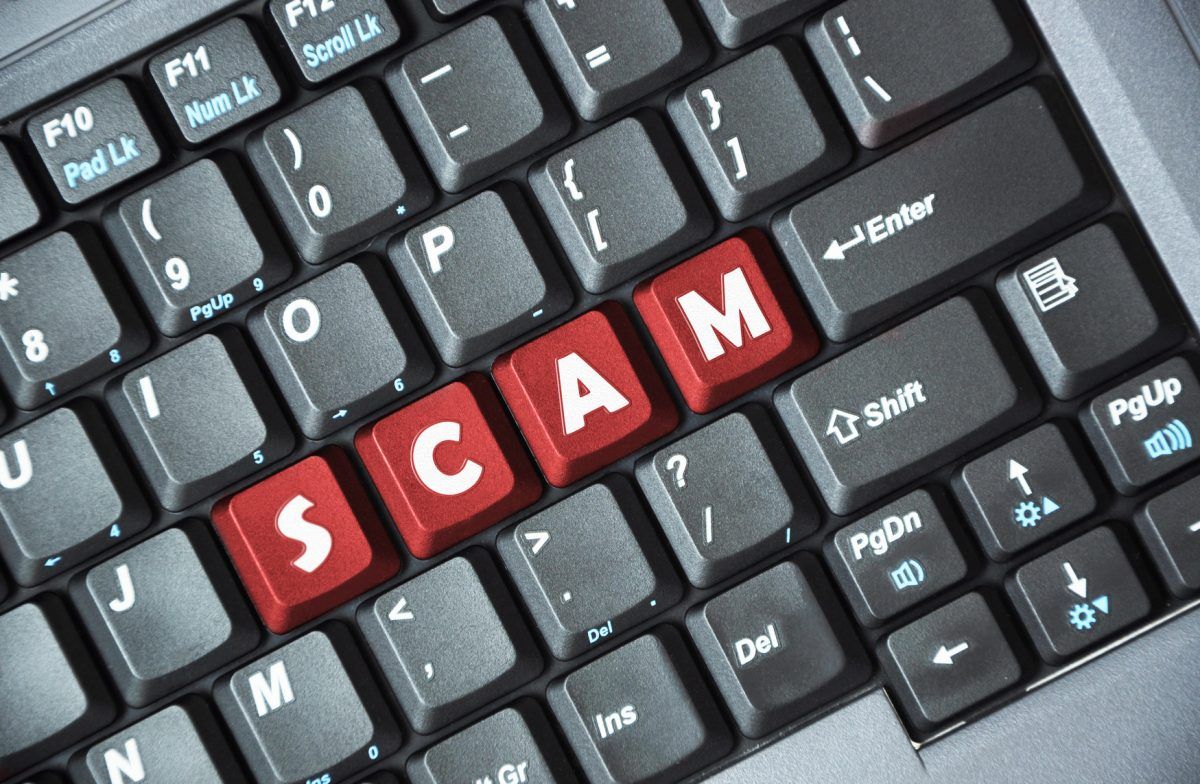Your Guide to Lottery Scams

Lottery scams have been around as long as lotteries themselves. While nowadays players are becoming more savvy with recognising online cons, fraudsters continue to come up with new and inventive methods of dragging money from their unsuspecting victims. We’ve gathered some information that should help you spot a scam.
How Lottery Scams Work:
The majority of the lottery scams will arrive to you in a form of an email, letter or text message. These scams will try to convince the victim that they have won a lot of money, house or other fantastic prizes in a lottery, raffle, sweepstake or competition they did not enter. In most cases, the scammers will also use the names of a legitimate overseas lottery like International Lotto Commission, Spanish Lotteries, etc. to sound more convincing. These scams usually request a quick response to prevent ‘missing out’, which adds a sense of urgency and stops the victim from thinking further whether the surprise is legitimate. The ‘winner’ is also urged to keep the information about their win confidential to ‘maintain security’ – this is aimed at preventing the victim from seeking further information or advice from independent sources. Further, the scam will detail the ‘fees’ that need to be paid in order to claim the prize. These are presented as ‘processing fees’, ‘insurance costs’, ‘government taxes’, ‘bank or courier fees’. The sums are usually quite modest to prevent the victim from thinking further or getting suspicious. Eventually the scammers will demand further payments for the prize (that does not exist, of course) to be released, and the victim will continue to send the funds as they have become invested in the scam with both their money and their time. In some cases, the scam will also ask that personal details are provided to ‘verify your identity as a winner’, as well as bank account details so the prize could be paid. The scammers will most likely misuse your identity and steal any money they can from your bank account.
Types of Scams:
- Direct Mail. The victim receives a letter from the scammer telling them that they won a massive prize. The letter advises the ‘winner’ to pay a fee as soon as possible to avoid missing out on the winnings. The ‘approved’ method of contact is usually via email while a genuine postal address may have been used on the letterhead to persuade the victim that the letter is legitimate.
- Email. These are usually very similar to direct mail scams. However, the email message may contain links to a site that very closely resembles an official lottery, but urges the victim to provide personal and financial information. These ‘spoof’ sites can sometimes be hard to tell apart from the website of a genuine lottery.
- Phone. Some scammers call the intended victim and pose as lottery officials to notify them of their “big win”. The fraudster then exploits the victim’s feelings of shock and excitement in order to extract the payment from them immediately. Having obtained bank or credit card details, the scammer promises to release the funds and disappears. Of course, the victim never receives their “prize”.
- Social Media. One of the most popular medium for scams nowadays. The scenario is usually that the victim adds the scammer as a friend or follower on networks like Facebook or Twitter, then the culprit can direct message with ‘the news’ that the victim’s account has been selected to win a prize. The scammer then proceeds with the above-outlined procedure to extract information and money from the victim.
- Mobile Phone. Much like other contact methods, the first touch point is the scammer sending a text message to the victim to inform them of winning a prize. They then urge the victim to call them back immediately. Once the victim has made contact, the same scenario seeking personal and financial details unravels as in the landline phone call.
How to Spot a Scam – Warning Signs:
- You receive a letter, email, text or private message or call advising that you won a prize in a lottery, competition or sweepstakes that you never entered.
- The communication is not addressed to you personally, but to ‘Dear Winner’ or something similarly vague.
- The email has been sent from a free webmail address (eg. @gmail.com, @hotmail.com, @outlook.com or @yahoo.com). Though unfortunately some scammers now use “email spoofing”, where a sender address is forged to made it look as though the message is from an official lottery.
- Email scams may contain links to sites that closely resemble an existing official lottery site. This is another form of “spoofing”, as the website appears genuine from the first look.
- The communication contains poor spelling and grammar along with unusual syntax.
- The communication is often promoting a high sense of urgency with a very tight deadline for claiming the prize.
- The communication pushes for confidentially as a ‘condition’ for claiming the prize.
- If the scam arrives in a form of a letter, it is often on poor quality paper with a photocopied letterhead, though it may contain the logo and official address of the lottery.
- The seemingly official images are low resolution and of poor quality.
- The communication makes repeated and overly strong claims that the offer is legal or/and has government approval.
- You are asked to send money to pay for ‘fees’ in order to claim the prize.
- The postal address for contact is not given; instead it’s a PO Box, email address or mobile phone number.
- The communication claims that your email address was chosen as a random winner.
How to Protect Yourself from Lottery Scams:

- NEVER send any money to pay any fee to claim a lotto prize. Legitimate lotteries will never ask a winner to pay a fee for collecting or processing their prize, while any taxes on lotto winnings are paid to the government, NOT the lottery operator or agent.
- NEVER provide your personal or financial information to someone you don’t know or cannot verify the identity of immediately.
- NEVER reply to an email if you do not know the sender and not expecting any such communication. Not even to unsubscribe.
- NEVER call a phone number you don’t know or cannot verify via sites like www.reverseaustralia.com
- NEVER click on any links or open any attachments in the email from a sender you don’t know. These are very likely to contain a virus or ‘trojan horse’ application. Delete the email immediately.
- If you have an online account with an official lottery operator or reseller, and you receive an email directing you to check your account, you best off logging into your account directly from your browser rather than clicking on any links contained in the email.
- ALWAYS seek independent advice on any offers, especially if it requires a financial commitment.
- IF IT LOOKS TOO GOOD TO BE TRUE – IT PROBABLY IS.
Where to Get Help:
If you think that you may have been a victim of a lottery scam, contact your local office of Fair Trading, ASIC or the ACCC for assistance. If you believe that your financial information may have been compromised, immediately advise your bank. In some cases you may report a scam to the legitimate organisation, whose name was used in the scam, they would be keen to assist to prevent being associated with a scam. You can also report a scam to SCAMwatch (a division of ACCC) or call 1300 795 995.
The main thing to remember with lotteries, sweepstakes and competitions is that while quite a few of them are free to enter, they all require participants to register first – usually a name, phone number or email address, a postal address or at least a postcode. No lottery would just randomly select ‘winners’ who have not registered.
By nature, most of us are honest and trusting with other people. Unfortunately, scammers exploit this trust. And while it’s mostly stories of pensioners losing their life savings to fraudsters that make the news, it’s a sad fact that people of any age and demographic can fall prey to the lottery scams. It doesn’t mean we should sacrifice our trust or honesty to stay safe; it’s simply the matter of being aware and alert. And remembering three golden rules of avoiding a lottery scam:
- You can’t win a competition you didn’t enter
- You will never be required to pay a fee to collect a genuine prize
- Never send money or give out personal information to someone you don’t know
Could you be Australia’s next millionaire? Buy your lotto tickets online now.




